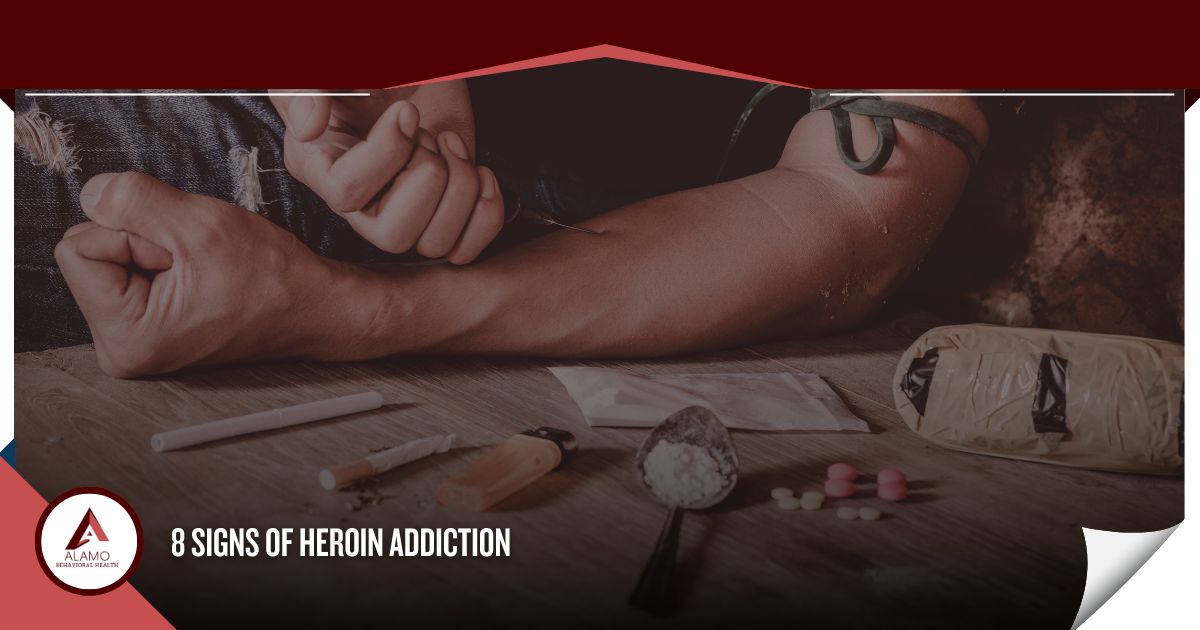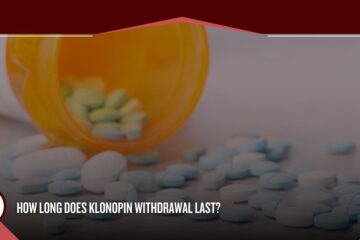 Heroin is an illicit, potent, and highly addictive drug. People who use heroin–even those who use it only occasionally–can quickly develop an addiction to it. Heroin addiction is a complex condition that affects people’s thoughts, emotions, physical health, and behaviors. People living with heroin addiction require timely, comprehensive treatment to safely stop using this destructive drug and learn the skills to avoid relapse later in life.
Heroin is an illicit, potent, and highly addictive drug. People who use heroin–even those who use it only occasionally–can quickly develop an addiction to it. Heroin addiction is a complex condition that affects people’s thoughts, emotions, physical health, and behaviors. People living with heroin addiction require timely, comprehensive treatment to safely stop using this destructive drug and learn the skills to avoid relapse later in life.
Recognizing the signs of heroin addiction can help you identify this condition quickly and seek treatment to recover. This article will explore eight of the most common symptoms of heroin addiction so that you can recognize this condition in yourself or a loved one and seek treatment.
Reach out to the team at Alamo Behavioral Health now to learn more about heroin addiction or to find treatment for yourself or a loved one.
8 Signs of Heroin Addiction
Heroin addiction often changes how a person acts, thinks, and looks. People who use heroin typically experience a rush of intense pleasure and warmth known as euphoria, followed by a period of calm, sedation, and contentment.
But how can you recognize heroin addiction if you do not see the person actually using heroin? Heroin addiction often leads to significant behavioral changes that you can recognize if you know what to watch for.
Here are eight of the most common signs of heroin addiction.
1. Drug paraphernalia
People may ingest heroin in several ways, including smoking it, snorting it, or injecting it. Heroin itself is most commonly a white or brownish powder. You may also notice paraphernalia used to ingest heroin, such as:
- Syringes or needles
- Cotton balls
- Rubber tubing or tourniquets
- Belts
- Spoons
- Rolled-up dollar bills
- Cut-up straws
- Hollowed out pens
- Razor blades
- Burnt squares of aluminum foil
- Matches
- Pipes
Noticing these items may indicate someone is using heroin.
2. Behavioral changes
Heroin abuse can quickly spiral into addiction, which means a total loss of control over your substance use. People with heroin addiction often exhibit dramatic behavioral changes. They may become unreliable, have significant changes in their mood, isolate themselves, or fall behind in their responsibilities at home, school, or work.
Heroin addiction is often so disruptive to a person’s mental and physical health that they cannot function in their daily lives.
3. Using slang terms for heroin
People with heroin addiction may use slang terms for heroin or heroin use. Some of the most common slang terms related to heroin include:
- Dope
- Smack
- H
- Hero
- Horse
- Junk
- China white
- Beast
- Brown
- Snow
- Skag
People may also use terms that describe a combination of heroin and other drugs, including:
- Dynamite (heroin and cocaine)
- Screwball (heroin and meth)
- Chocolate bars (heroin and Xanax)
- A-bomb (heroin and marijuana)
- El Diablo (heroin, cocaine, and marijuana)
- LBJ (heroin, PCP, and LSD)
- Primo (heroin and crack)
- H-bomb: heroin and ecstasy)
- Neon nod (heroin and LSD)
Using slang terms to describe heroin could indicate that someone is very familiar with this drug and others who use or sell it.
4. Missing valuables
Heroin addiction is often all-encompassing, leading people to do things that they typically wouldn’t do. Many people with heroin addiction steal money or valuable items to fund their addiction. They may steal from friends, family members, or strangers to get the money they need to buy more heroin.
5. Track marks on the body
Heroin track marks are discolored veins that result from IV heroin use. People who inject heroin may sustain physical damage from using heroin over and over in the same area of the body, using blunt needles, sustaining infections, or injecting contaminated heroin.
Track marks may appear differently from person to person but typically look like bruising, redness, and red or dark circles over veins on the arms, hands, or legs.
People who repeatedly use heroin may also suffer from collapsed veins, which may appear bumpy or raised and are dark blue in color.
6. Legal trouble
Heroin addiction can lead to legal consequences. People may be arrested for possession of the drug or may participate in illegal activities, such as stealing money or valuable items, to buy heroin.
7. Being secretive
People often become secretive or dishonest when in the grips of heroin addiction. They may lie about where they are going, cover up their physical marks, steal money or valuables, or become generally unreliable.
Sudden changes in behaviors like lying, secretiveness, or defensiveness when asked about substance use could indicate that someone is living with heroin addiction and requires help.
8. Chipping
“Chipping” is a term that describes intermittent heroin use. People who “chip” may believe that they can use heroin on a determined schedule to avoid becoming addicted to it. For example, someone might plan to use heroin three times a week and stick to that schedule.
People who “chip” may believe that scheduled, regular heroin use is safe and poses no risk for addiction. However, heroin is so highly addictive that many people develop intense cravings for it and may quickly lose control over their substance use.
If you recognize these signs of heroin addiction in yourself or someone you love, you must act quickly to find treatment and support. The sooner you address heroin addiction, the better the outcomes are likely to be.
Find Heroin Addiction Treatment Now
Heroin abuse and addiction can be challenging to recognize, and people may be resistant to getting help. Having professional support and guidance is essential. Reach out to the team at Alamo Behavioral Health to learn more about recognizing the signs of heroin addiction and to learn about your treatment options.




